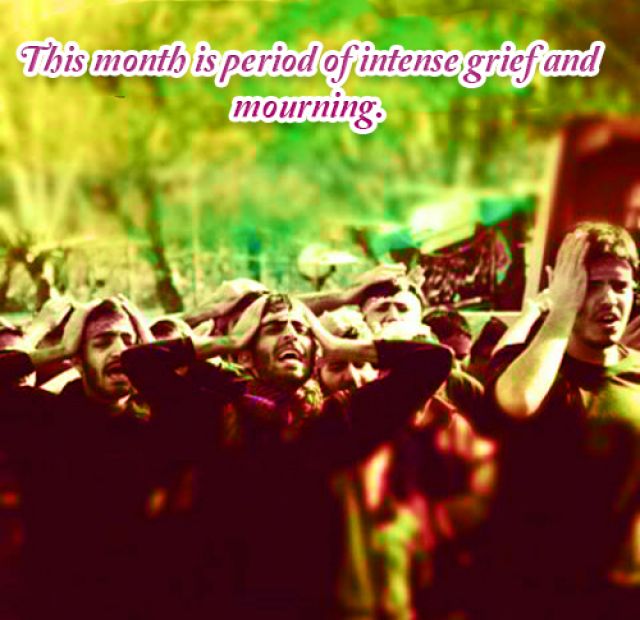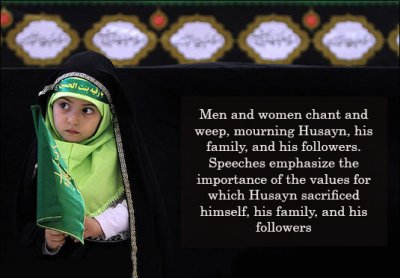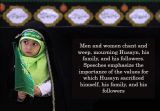
سلام می کنم به میوه دلم
شاید تعجب کنی از مادری که زبانی قاصر در بیان احساساتش دارد چگونه چنین نامهای را نوشته است.این ایدهی نامه ای به دخترم باعث شد بفهمم همه مادرانه ها فقط در گفتن خلاصه نمیشود.
دختر نازنینم آن روزها که هنوز چند ماهی به زمینی شدنت مانده بودتنها دعایم از خداوند این بود که صورت و سیرت فاطمی و شجاعت بیمثال زینبی داشته باشی. این روزها که چهرهی معصومانه و جسم پر جنب و جوشت را میبینم مطمئن میشوم که میتوانی راه مادر سادات را پیدا کنی.
عزیزکم هنوز هم اولین دعایم این است:” همانی باشی که پروردگارت می خواسته باشی.”
قربانت شوم، وقتی میبینم که با همین زبان کوچک و شیرینت هر کسی را میبینی با خنده میگویی"للام” میفهمم که تو دختر با ادب و خوشروی من هستی.
وقتی میبینم به هنگام برگشتن پدر به خانه آنچنان با هیجان دستان کوچکت را به هم میزنی و دوان دوان به طرف او میدوی و در آغوش گرمش جای میگیری مطمئن میشوم که محبت پدریات، تو را اینچنین پرشور کرده است.
وقتی میبینم دست نوازش بر سر برادرت میکشی و در نبودش دلتنگ او میشوی و ناله"دادا، دادا"سر میدهی میفهمم که تو خواهری دلسوز و مهربان هستی.
وقتی میبینم به هنگام ناراحتی دستان کوچکت را جلوی چشمانت میگیری و شروع به گریه کردن میکنی و بعد چشمان اشکبارت را در آغوش مادر و پدر تسلا میدهی مطمئن میشوم که تو پشت و پناهت را شناختهای.
نازدانه من، همچنان تا هر زمان که مهمان زمینی ها هستی پاک، مهربان، معصوم بمان.
با تمام وجودم دوستت دارم.
موضوعات: داستانی
 2 نظر »
2 نظر » 
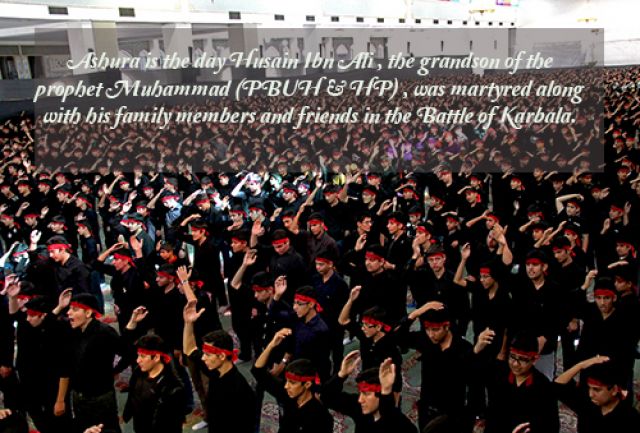 As the enemies had the body of Imam Hussain (as) surrounded, each took their turn stabbing his pure defenseless body, laid out on the ground; thus, while viciousness, revengefulness, and feral behavior swept through the battle field, in the camps of Imam Hussain (as) the spirit of remembrance in God, the human quality of tenderness, and intense emotions prevailed. All women and children—no one but women and children were left in the camps, with the exception of the only surviving male Ali Ibn Hussain (as) who was ill—were worried about Hussain Ibn Ali (as) and what would transpire next. They came out of their tents, and proceeded to the area where they believed Hussain Ibn Ali’s (as) body was seized; it has been narrated that the women departed from the camp. You have probably seen or heard how Arab women weep and mourn: it is still common among Arab women to mourn painfully upon the death of their loved ones; they beat their own faces, and pull at their hair; they mourn in such an intense manner. Well, these women had lost a loved one, a man like Hussain Ibn Ali (as). Hazrat Zeinab was heading the women towards the sight of his martyrdom. When she arrived, she spotted the body of her beloved brother on the blistering grounds of Karbala. Instead of revealing some sort of reaction, or grievance, she went to the corpse of her beloved Hussain (as), and called on her grandfather (pbuh). She said, “O’ the Messenger of God, peace be upon you! Take a look at your Hussain who is covered in blood, with his body hacked up.” O’ my dear grandfather! O’ Great Prophet, look towards the hot desert of Karbala. This is your Hussain who is now covered in blood and dust. Then, as it has been narrated, Zeinab (as) reached her hands beneath the body of Hussain Ibn Ali (as) and called out, “O’ God! Please accept this sacrifice from the progeny of Muhammad (saw)!” Ayatollah Khamenei, 9/27/1985
As the enemies had the body of Imam Hussain (as) surrounded, each took their turn stabbing his pure defenseless body, laid out on the ground; thus, while viciousness, revengefulness, and feral behavior swept through the battle field, in the camps of Imam Hussain (as) the spirit of remembrance in God, the human quality of tenderness, and intense emotions prevailed. All women and children—no one but women and children were left in the camps, with the exception of the only surviving male Ali Ibn Hussain (as) who was ill—were worried about Hussain Ibn Ali (as) and what would transpire next. They came out of their tents, and proceeded to the area where they believed Hussain Ibn Ali’s (as) body was seized; it has been narrated that the women departed from the camp. You have probably seen or heard how Arab women weep and mourn: it is still common among Arab women to mourn painfully upon the death of their loved ones; they beat their own faces, and pull at their hair; they mourn in such an intense manner. Well, these women had lost a loved one, a man like Hussain Ibn Ali (as). Hazrat Zeinab was heading the women towards the sight of his martyrdom. When she arrived, she spotted the body of her beloved brother on the blistering grounds of Karbala. Instead of revealing some sort of reaction, or grievance, she went to the corpse of her beloved Hussain (as), and called on her grandfather (pbuh). She said, “O’ the Messenger of God, peace be upon you! Take a look at your Hussain who is covered in blood, with his body hacked up.” O’ my dear grandfather! O’ Great Prophet, look towards the hot desert of Karbala. This is your Hussain who is now covered in blood and dust. Then, as it has been narrated, Zeinab (as) reached her hands beneath the body of Hussain Ibn Ali (as) and called out, “O’ God! Please accept this sacrifice from the progeny of Muhammad (saw)!” Ayatollah Khamenei, 9/27/1985
 2 نظر »
2 نظر » 
Of course this is easier said than done. What Imam Hussein (a.s.) did was an extraordinary feat. That is to say, the dimensions of his action are far more than what we estimate. We usually ignore aspects and details. Once I spoke about Imam Hussein’s (a.s.) patience. His patience was not limited to enduring thirst or seeing his companions being killed. These things are relatively easy to tolerate. The kind of patience that is difficult to practice is to listen to influential, aware and respectable people who keep creating doubts and telling you that what you are doing is dangerous and wrong. Who did those things? People like Abdullah Ja’far, Abdullah Zubair and Abdullah Abbas. These prominent figures of that time were constantly telling Imam Hussein (a.s.) not to do what he was doing. If it were somebody else, somebody who did not have that determination and stable character, he would have thought, “Well, I did my duty. These people are talking like this and the world is acting like that, so I should just say what I am supposed to say and do nothing else.” A person who decides to stand up against such statements, such temptations, such doubts and such efforts to bend sharia and is not dissuaded from continuing his path - such a person is the one who can give rise to such a great transformation. In this regard our magnanimous Imam (r.a.) was similar to the Lord of the Martyrs. I explained this in another meeting and I do not want to go into the details now. This was how Imam Hussein (a.s.) acted as a guardian.
 4 نظر »
4 نظر » 
 What is Muharram?
What is Muharram?
Muharram (Arabic: محرم) It is the first month of the Islamic calendar. Instead of joyous celebration, Muslims mark the beginning of the New Year by taking up the black attire of sorrow and participate in mourning gatherings in which the sacrifices of Husain and his companions are commemorated. It is one of the four months of the year in which fighting is prohibited. Since the Islamic calendar is lunar, Muharram moves from year to year when compared with the Gregorian calendar.
Muharram is so called because it was unlawful to fight during this month; the word is derived from the word ‘haram’ meaning forbidden. It is held to be the most sacred of all the months, excluding Ramadan.It is the same month when Husayn, the grandson of the Prophet Muhammad, was brutally massacred in Karbala alongside his family and friends in the year 680 CE/61 AH
Their martyrdom is a sad day for all Muslims, especially the Shi’a, who hold mourning ceremonies to recall the righteous virtues for which the valiant martyrs stood and the grave calamities that they thus had to bear. The commemoration of this brutal massacre (Battle of Karbala) begins on the first day of Muharram and reaches its climax on the 10th of Muharram, the day of the battle, known as Ashurah and continues for 40 days or 69 days.
موضوعات: عاشورا
 نظر دهید »
نظر دهید » 
The concept of guardianship was embodied by Imam Hussein (a.s.) with all its dimensions and with all the necessary and possible means. This is not to say that others did not do such a thing or did not want to do such a thing, rather it means that this movement was fully realized in the behavior of the Lord of the Martyrs (a.s.) during his ten-year imamate. One can clearly notice in his lifestyle all the methods that could have been used by a descendant of the Holy Prophet (s.w.a.) to preserve the great legacy of Islam which has been passed down by the Holy Prophet (s.w.a.) and his father as well as their genuine followers. We can clearly see everything in the lifestyle of the Lord of the Martyrs (a.s.) - everything ranging from clarification, to forewarning, to promotion of Islam, to provoking the conscience of prominent figures of his time during a sermon in Mina. All these things are tangible in the lifestyle of the Lord of the Martyrs (a.s.). Later on he stood up against a great deviation and laid down his life. Imam Hussein (a.s.) was aware of the consequences of his movement. He was an infallible Imam. Infallible Imams’ extensive knowledge and insight are beyond our heads. Imam Hussein (a.s.) revolted to set a role model and he refused to surrender. He asked people to help him and when a group of people from Kufa expressed their willingness to accompany him on this path, Imam Hussein (a.s.) accepted their offer and moved towards Kufa and he did not give up in the middle of the way. Imam Hussein (a.s.) stood up against the deviated current of his time, which was extremely dangerous. And this became a lesson and Imam Hussein (a.s.) himself makes the same point. That is to say, he backed up his action with the order of Islam. He said that his duty was what he was doing. He said that he had to express his opposition, no matter what the consequences were. He said, “It is good if my destiny is a victory and if my destiny is martyrdom, so much the better.” This was how Imam Hussein (a.s.) acted. This was a perfect instance of self-sacrifice and it safeguarded Islam. This move preserved Islam. This move institutionalized values in society. If Imam Hussein (a.s.) had not accepted this danger, if he had not made a move, if he had not taken action, if his blood had not been shed, if those great tragedies had not happened to the shrine of the Holy Prophet (s.w.a.), to Imam Ali’s (a.s.) daughter and to the Holy Prophet’s (s.w.a.) descendents, this event would not have gone down in history. The event that could have prevented that great deviation had to shock people and history as much as the deviation did. This shows Imam Hussein’s (a.s.) self-sacrifice. Of course this is easier said than done. What Imam Hussein (a.s.) did was an extraordinary feat. That is to say, the dimensions of his action are far more than what we estimate. We usually ignore aspects and details. Once I spoke about Imam Hussein’s (a.s.) patience. His patience was not limited to enduring thirst or seeing his companions being killed. These things are relatively easy to tolerate. The kind of patience that is difficult to practice is to listen to influential, aware and respectable people who keep creating doubts and telling you that what you are doing is dangerous and wrong. Who did those things? People like Abdullah Ja’far, Abdullah Zubair and Abdullah Abbas. These prominent figures of that time were constantly telling Imam Hussein (a.s.) not to do what he was doing. If it were somebody else, somebody who did not have that determination and stable character, he would have thought, “Well, I did my duty. These people are talking like this and the world is acting like that, so I should just say what I am supposed to say and do nothing else.” A person who decides to stand up against such statements, such temptations, such doubts and such efforts to bend sharia and is not dissuaded from continuing his path - such a person is the one who can give rise to such a great transformation. In this regard our magnanimous Imam (r.a.) was similar to the Lord of the Martyrs. I explained this in another meeting and I do not want to go into the details now. This was how Imam Hussein (a.s.) acted as a guardian. Statements made during an address to members of IRGC; July 4, 2011. 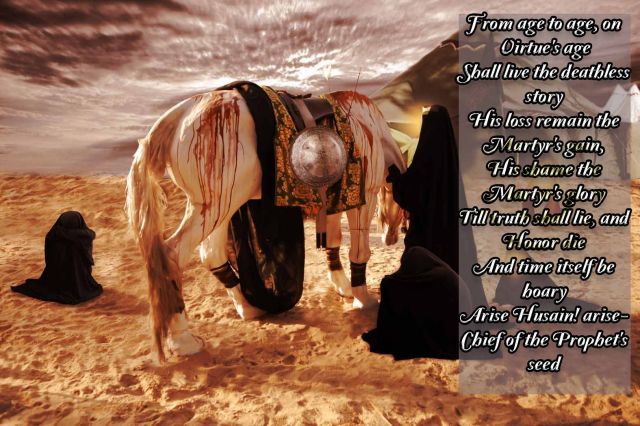
موضوعات: داستانی
 4 نظر »
4 نظر » 